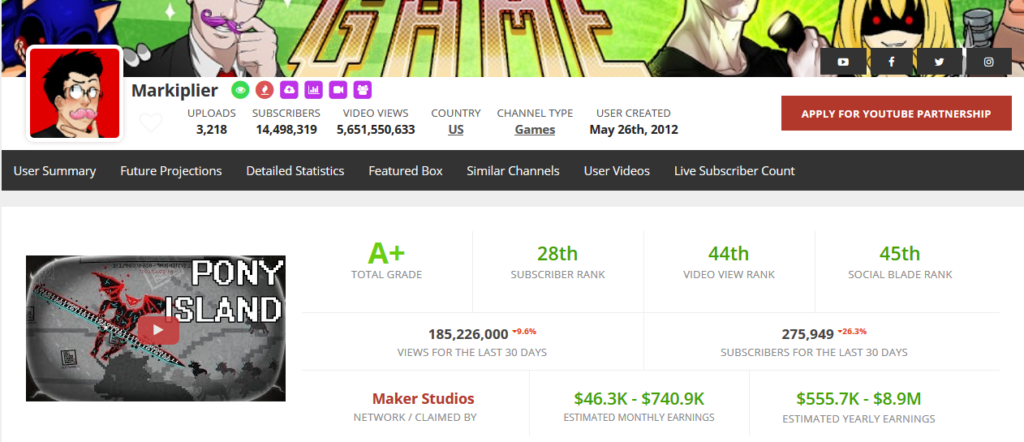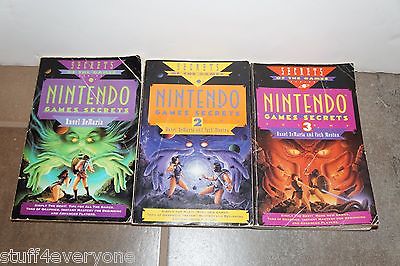There’s so many metrics to measure how successful a game is — sales, revenue, active users, # of microtransactions, review score, etc. All of these things are valid in their own right, but one that is rarely talked about is industry. I don’t mean the impact a game has on gaming as a whole, I mean how much money gets paid to people as a result of a game existing.
History
20 years ago, the people who made money off of a game were limited to the developer and publisher of the game. You could also include third party marketing deals for gaming like Legend of Zelda TV show, action figures, and John Leguizamo, but for the most part the money stayed in the industry. The first instance of an unrelated party making money off of a game that I can remember was Prima and its strategy guides. It wasn’t a first party resource like the Nintendo help hotline you were asking for help, it was some guy who wrote down some stuff on how to be good at the game you couldn’t be. For a while, that’s where it stopped too. Aside from video game branded merchandise, it was rather difficult to make money off of a game if you didn’t make it.
Then the internet happened.
Suddenly GameFAQs comes in to existance. Anyone could write their own strategy guide and post it for free to a site that was making money off of content they didn’t have to create. Great business model. It was easy to create webrings of Aerith shrines and chatrooms for RPing. Around then, people started to become interested in video games as a sport in a major way. Unreal Tournament, Quake, and Counter Strike all started having competitive scenes with small amounts of prize money. It still wasn’t enough to make a living, but definitely a great way to show off your skills and be rewarded for it.
As competitive gaming grew, it became clear that people liked watching others play video games. Platforms like YouTube, Livestream, and Justin.TV were all suddenly havens of gaming videos. Watching live or prerecorded, edited or raw, the content was there and ready for the consuming. The business models were a bit murky in the beginning, but were slowly coming along. So too was the ability to freely post fanart and have it seen. If you drew a really awesome Lara Croft, all you had to do was link your DeviantArt or LiveJournal and you were no longer drawing for an audience of one. As a result of creating communities and sharing artwork, it was easier to say “I’m going to be at ConnectiCon this weekend! Come by for a print of Sephiroth seductively sniffing a sunflower.” Again, not easy to make a living doing it, but much easier than before.
Today
Fast forward to this year and there’s legitimate industries around creating gaming-related content. YouTubers like CaptainSparklez, SSundee, and MumboJumbo all make a living full time making Minecraft videos. Some are so successful at it, they can even employ people. Some people run custom Minecraft servers and make a living off modding the game and offering it for subscription fees. And now with Etsy, it’s easier than ever to make a McCree/Hanzo keychain, sell it to your fans, and be able to make money off of your passion. It’s by no means easy, but the fact that the work of a game company keeps strangers employed is incredible.
Squaring up a game’s worth is a tricky process and one that lends itself to a lot of bias. However, using the metric of how much money is paid to people is one more interesting vector to lend itself to speaking toward the importance of a game in the current culture. Games like Call of Duty, Minecraft, and Five Nights at Freddies are all finding large amounts of relevance in today’s society because of the industries they’ve created. Even classic games are gaining more of a foothold in the zeitgheist because of speedruns.

Another interesting property of the monetary gains begot by a game is that even if critical scores and sales numbers are low, this metric could still be high. Take something like the sea of Slenderman games. If games could be objectively bad, most of these would certainly qualify. However, some content creators relied on these awful 2 day hack jobs for views for a few months. Does that make them any more valuable or important? Maybe not. But Joe Gamedev’s weekend joke allowed a few people somewhere else in the world to buy a few meals. That’s pretty radical.


















